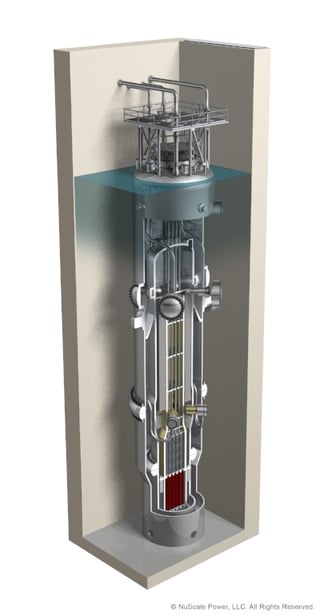This post is one in a series featuring the complete slate of advanced energy technologies outlined in the report This Is Advanced Energy. Image courtesy of NuScale Power.

Small modular reactors (SMRs) are small-footprint nuclear power plants that can be sized between 10 MW and 300 MW. There are numerous SMR plant designs, although SMRs all rely on the same nuclear fission technology used by larger plants. Nuclear fission releases heat in the reactor core that is used to produce steam, which spins a steam turbine attached to an electric generator. Unlike utility-scale plants, which are difficult to site and can take years to construct, SMRs are designed to have many components fabricated and assembled offsite, thus reducing the time and complexity of plant construction and increasing potential plant locations. SMR designs generally have their reactors buried in the ground away from weather hazards, and are often designed to use passive cooling systems that are not vulnerable to power outages, further increasing the safety of the plant.



